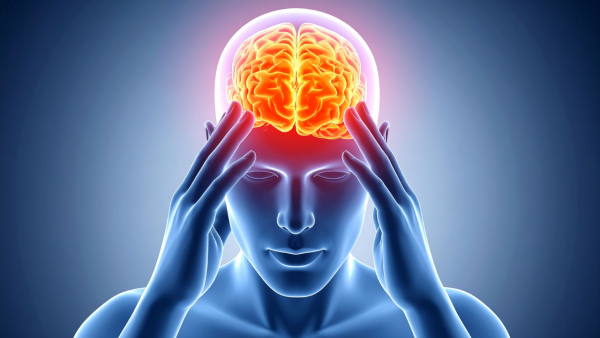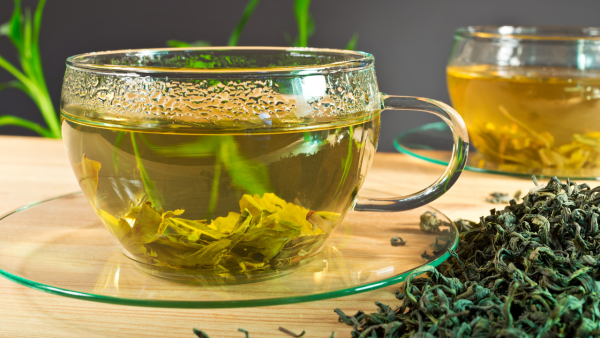Coffee vs. green tea: Which drink supercharges the brain and fights Alzheimer's

When it comes to brain health , people have tried numerous foods and lifestyle changes but one thing that always comes to the mind is which antioxidant drink is powerful for our brain. While most of us believe if we start our mornings with coffee, it is the best way to kickstart our brains and stay focused on our work without feeling sleepy throughout the day. While some people say, green tea is better, since it boosts energy, get rid of bodily toxins and aid in better cognitive function. Hence, let us deep dive into this very common question: Which is better for the brain- green tea or coffee? Let us explore what science and neuroscientist say.
Dr. Robert Lowe, a neuroscientist, explains the benefits of both of the beverages.. Let us look into it...
Coffee: Brain boost in a cup

Coffee is more than just a morning ritual, it can be a powerful ally for the brain. To some, it might be the only way they can start their mornings, a freshly brewed cup of coffee with no sugar additives. Research has shown that regular coffee consumption is associated with a lower plaque buildup, which becomes one of the key indicators of aging and a reason for Alzheimer's disease.
A research published in PubMed central titled " says that Coffee contains over 1,000 bioactive compounds, including caffeine, polyphenols, antioxidants, and trigonelline, many of which have anti-inflammatory, antioxidant, neuroprotective, anticancer, and heart-protective effects. Apart from that it might reduce the probability of Alzheimer's up to 65% and Parkinson's 29%.
But, where there are perks, there are cons too..
It can interfere with iron absorption, osteoporosis medication and even some antibiotics.
Green tea: A calmer cognitive lift

Green tea brings its own set of brain-boosting benefits, and for providing soothing energy as well. A study published under the title, : The JPHC Saku Mental Health Study, its main findings concludes that, 2-3 cups per day significantly reduced the risk of cognitive decline, Odds Ratio (OR): 0.56 -This means a 44% lower risk compared to non-drinkers. However, this was only observed in older individuals, no significant effect was found in the entire sample that included younger people. This is to remind that more is not always better, but higher doses of green tea (4+cups) did not increase benefits.

According to Robert Lowe, coffee, is a cognitive enhancer, big shoutout to its caffeine content, it helps increase focus, enhance memory and attention span.
It is also rich in polyphenols, these compounds give coffee its dark color, and are a fantastic addition to the gut health, a healthy gut microbiome is deeply connected to better brain function.
His only tip is choose organic coffee to avoid exposure to pesticides commonly found in conventional beans. Brew it with fluoride-free, distilled, or reverse osmosis water for optimal benefits.
For green tea he says, that it helps in balanced energy, green tea contains caffeine, but also features L-theanine, an amino acid that promotes calmness and relaxation. It is also gut-friendly and contains polyphenols, like coffee which supports gut health and in turn nourishes the brain (through the gut-brain axis).
Which is betterBoth coffee and green tea offer powerful benefits, but coffee might be slightly more stimulating, while green tea provides a smoother, calmer energy. But as Robert says, at the end of the day the best choice is the one you enjoy!
 When it comes to brain health , people have tried numerous foods and lifestyle changes but one thing that always comes to the mind is which antioxidant drink is powerful for our brain. While most of us believe if we start our mornings with coffee, it is the best way to kickstart our brains and stay focused on our work without feeling sleepy throughout the day. While some people say, green tea is better, since it boosts energy, get rid of bodily toxins and aid in better cognitive function. Hence, let us deep dive into this very common question: Which is better for the brain- green tea or coffee? Let us explore what science and neuroscientist say.
When it comes to brain health , people have tried numerous foods and lifestyle changes but one thing that always comes to the mind is which antioxidant drink is powerful for our brain. While most of us believe if we start our mornings with coffee, it is the best way to kickstart our brains and stay focused on our work without feeling sleepy throughout the day. While some people say, green tea is better, since it boosts energy, get rid of bodily toxins and aid in better cognitive function. Hence, let us deep dive into this very common question: Which is better for the brain- green tea or coffee? Let us explore what science and neuroscientist say.


